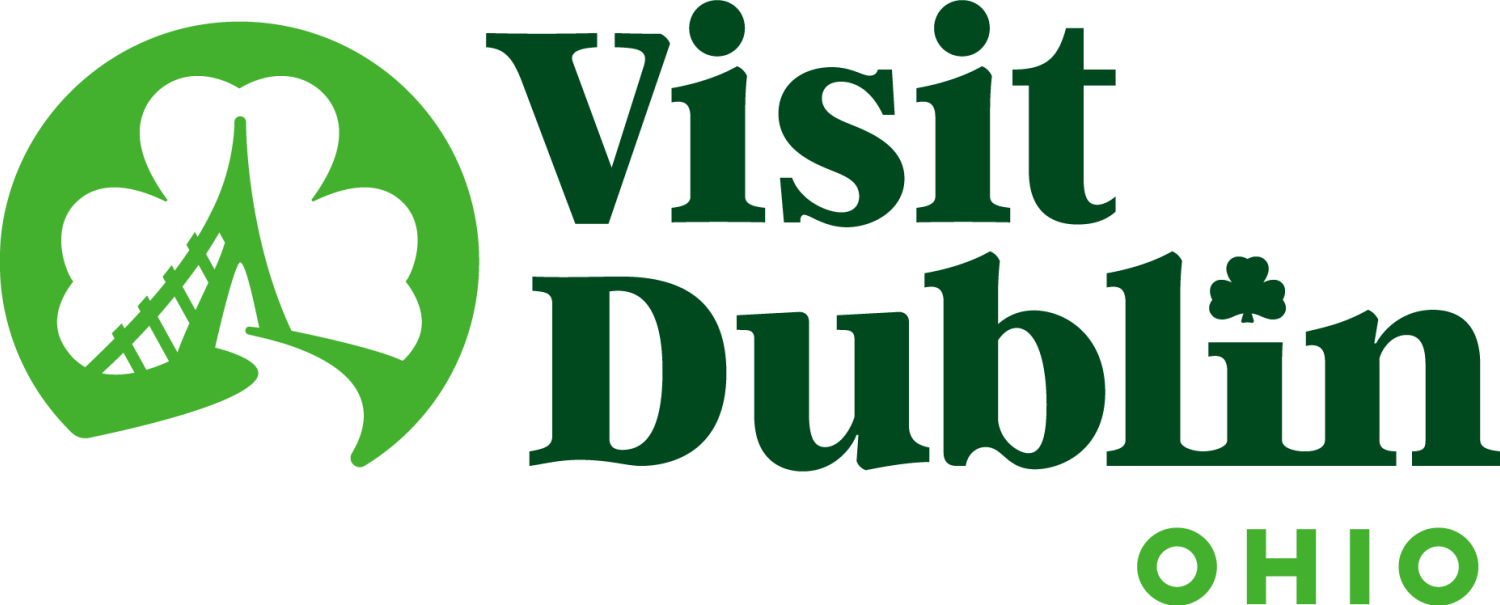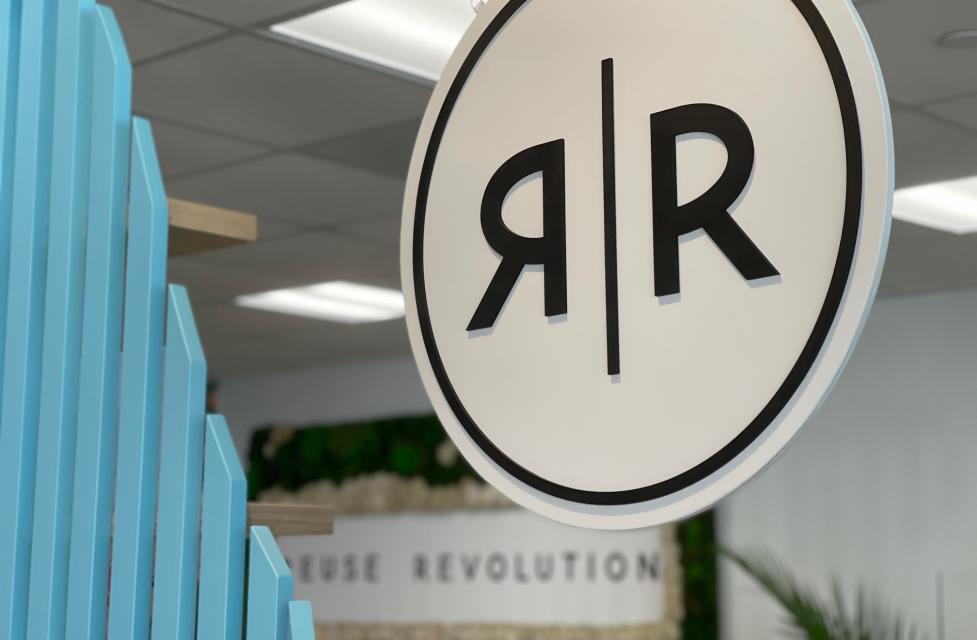
Everyone knows that Earth Day has popularized the three R’s of Reduce, Reuse, Recycle… but did you know you’re probably already saving the planet without realizing it? You may be turning off the lights when you leave a room – you’re saving electricity! You may be turning off the water when you brush your teeth or taking shorter showers – you’re saving our precious water! You may choose to ride your bike to the farmers market instead of drive – you’re reducing emissions and keeping our air cleaner! Yay for Earth Day, every day!
Here at Reuse Revolution, we love talking about sustainable lifestyle choices with our customers. When we first opened in North Market Bridge Park, we knew our Dublin community was already eco-friendly in so many ways. We have been blown away by our customers’ affirmations and like-minded support. Thank you for caring about the planet and supporting small businesses on a mission to make less trash!
If you’re new to sustainable living or wondering how to incorporate small changes into your life: here are five quick tips to coexisting with the planet in our imperfect world.
1) Refill not landfill
When you choose to refill your soap, shampoo, cleaning spray, or hand sanitizer in our shop’s refill station, you are keeping bottles out of our waste stream! Every time you refill a bottle and use it again, you are saving the planet by saving our resources. Yes, recycling is great, but using what we already have is better. Refill stations are not a new idea. Refilling and buying in bulk is how we used to shop before everything came in miniature portion sizes and shrink wrapped in plastic. Let’s get back to eco-friendly shopping and reuse our refill bottles!
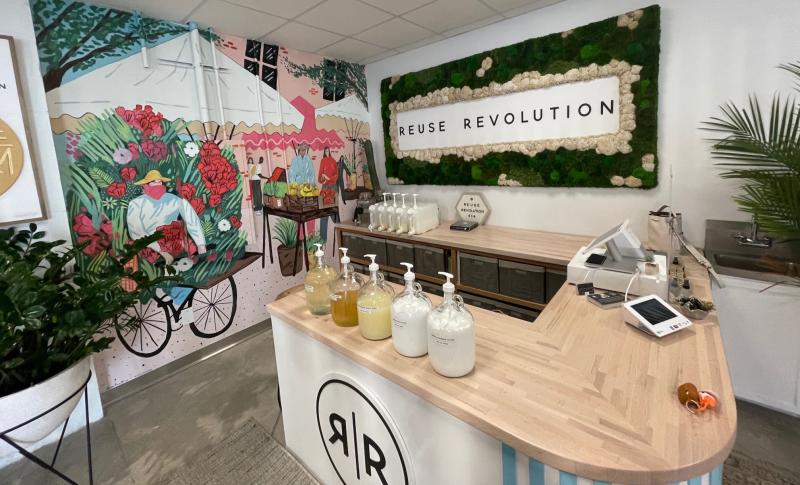
2) Go green & save money! Reuse, reuse, reuse.
Many people don’t realize it, but the cost per use of most items we buy is extremely high. If we purchase a $10 item that is only meant to be used once, that cost per use equals ten dollars. But if we purchase a $10 item that is reusable, and we reuse it ten times, then that cost per use becomes one dollar. Not only are you saving money, but you don’t need to re-purchase that item over and over again. Examples of this are:
- Paper towels vs reusable cloth towels
- Disposable water bottles vs. reusable water bottles
- Cheap plastic grocery bags vs reusable grocery bags
- Single-use plastic utensils vs reusable food utensils
There are so many single-use items hiding in plain sight that we can choose to reuse. Single-use items like disposable paper towels, plastic grocery bags, plastic produce baggies, disposable coffee cups, plastic water bottles, and plastic straws can all be reused or replaced with reusable alternatives. Even if plastic is supposedly inexpensive to make, it has very long-lasting negative consequences for our bodies and our planet. Plastic becomes litter and harms our innocent wildlife while polluting our lands and waters. Ditch single-use items and opt for reusable. Not only will we save money, but we will be decreasing our trash. Win-win for us and for mother nature!
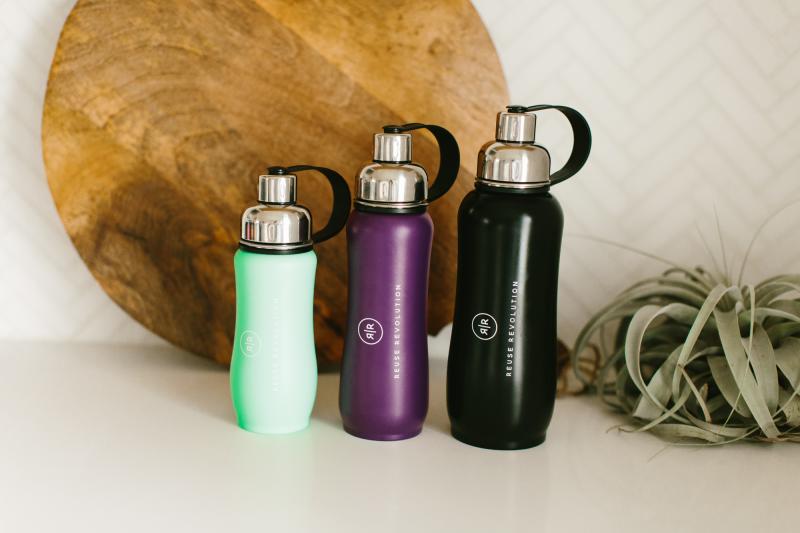
3) Think about the lifecycle of the product. Is it hurting or helping the planet?
All products are made from synthetic or natural materials. Materials like plastic come from fossil fuels, whereas materials like bamboo, linen, hemp, cotton, and others are either renewable resources or kinder to the planet in their production process. When a product is made, it may deplete our planet of resources (like plastic does), or it may be helping our planet when we harvest it (like bamboo does). Renewable vs non-renewable resources are an important consideration to think about when buying products.
When we think about product functionality, it is important to consider its practicality and reusability. We always say if an item brings you joy, absolutely buy it. It is wonderful to support small businesses as they’re the backbone of our economy. But you should always slow down and think about an item before you buy it. Our landfills don’t need any more trash in them. Think about where that item is going to end up when you are finished with it. Is the item doomed and destined for the landfill, or can it be returned to our soils, as nutrients to help our planet?
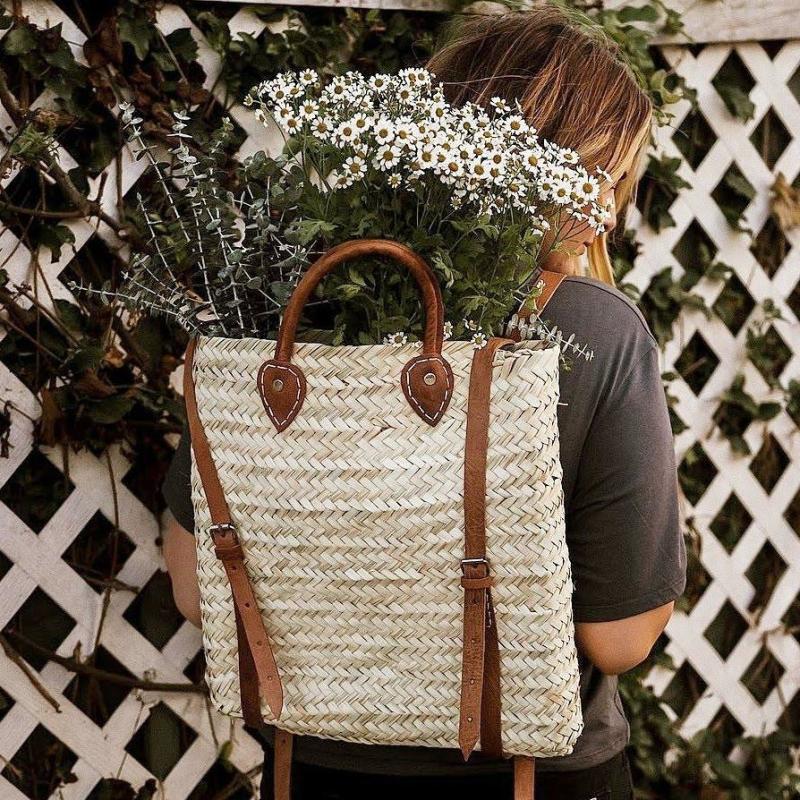
4) Recycle less – hear me out.
This is the “Reduce” concept. Recycling is an amazing solution to our world’s trash problem, but it isn’t the ONLY solution. Recycling is labor-intensive and costs a lot of money. Plus, it isn’t streamlined across various states or countries. Recycling is different everywhere.
If we all buy less stuff, we will be making less trash, therefore there will be less we need to put in the recycling bin or trash bin. How can we accomplish this? By doing a trash audit. Check out the items you are throwing away. Did you know 70% of our landfills could have been recycled or composted? (SWACO) Are items in your trash can recyclable or compostable?
Are items in your recycling bin actually recyclable in your area? Different communities collect different items depending on where you live. Do an internet search of your zip code to find your recycling provider. Their website will let you know what you are able to recycle in your area. RecycleRight.org is an awesome resource if you’re curious!
Another way to accomplish this goal: Choose sustainable items in sustainable packaging.
When you go shopping, do you notice your products shrink wrapped in plastic? Me, too. I have learned to purchase items that are as package-free as possible. Everyone knows plastic can be recycled but did you know that doesn’t mean it is recycled? Plastic and paper can only be recycled a handful of times before their material’s integrity break down, and after that point, it doesn’t make sense for recycling facilities to keep spending money without a return on their investment. When materials are co-mingled, they become harder to recycle. An example of this is a disposable coffee cup. Even though the plastic liner, the paper outer layer, and the cardboard sleeve, are all technically recyclable materials; they may be too contaminated to recycle, or they may cost the recycling facility too much money to separate and process. So disposable coffee cups aren’t recycled when you toss them in the bin.
Materials like glass and aluminum are recyclable indefinitely, which means you can recycle them over and over again into other new products. This is of course better for our planet when we can reuse a material infinity times instead of only a handful of times.
Choose products that are packaged in recycled and recyclable cardboard or recycled paper instead of plastic. If you must purchase something in plastic, try to choose a product that is made from recycled plastic materials. At least then that shows the producers and manufacturers that consumers want the packaging from recycled sources. This is the notion of supply and demand. Vote with your dollars when you’re able. Choose products in glass or aluminum instead of plastic. Avoid throwing things away unnecessarily whenever possible and ask companies to provide products to us in better packaging. Eco-friendly isn’t just trendy, it is necessary.
Don’t forget: just because an item has a recycling symbol on it, does not mean it is recyclable! The recycling symbol is simply the RIC, resin identification code. RIC indicates the type of plastic used in your packaging or product.
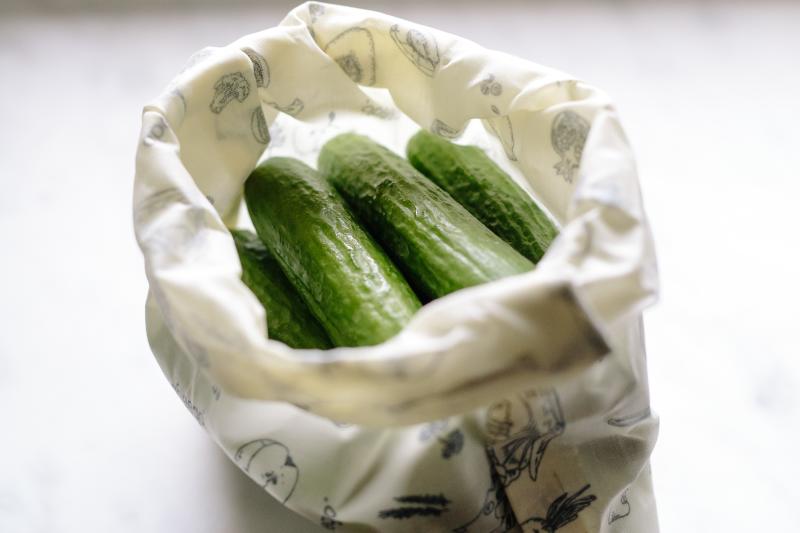
5) Fast Fashion and Factory farming
Don’t forget, efficiency and convenience often mean there are some ugly behind-the-scenes happenings that aren’t paying fair wages to people or aren’t treating animals and people fairly. Let’s slow down and question where our clothing and food are coming from. If your clothing costs less than a cup of coffee, someone probably isn’t being paid to make it. Check out the True Cost and Story of Stuff documentaries to learn more. Whether you are eating meat or plants: food that is sourced locally and in-season is always better for the planet and your community. Support your local farmers and check out farmers' markets and local small businesses to learn more! The Dublin Market at Bridge Park is a great place to get started.
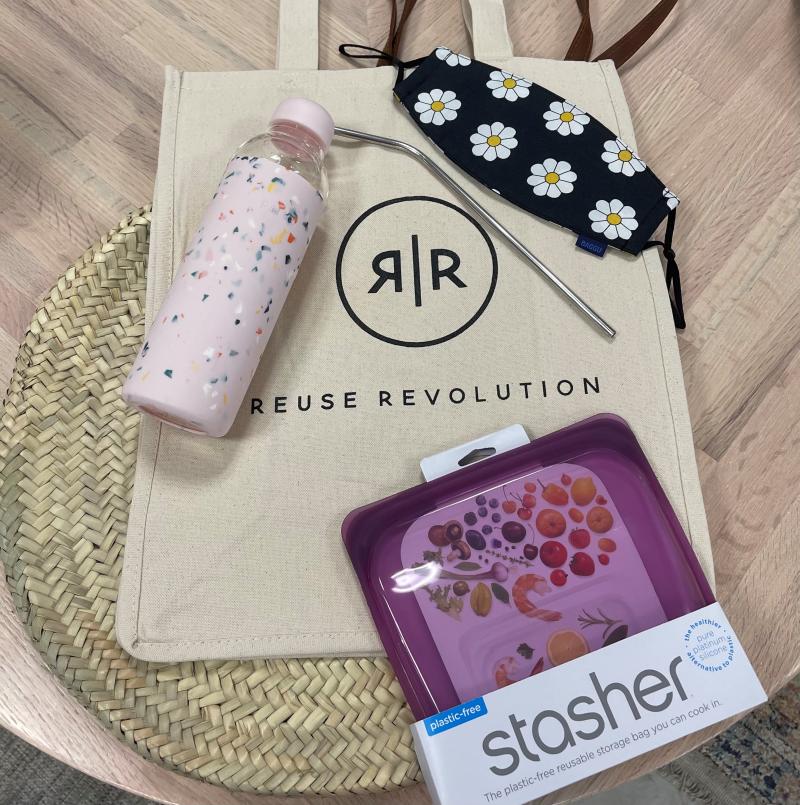
Above all, remember that progress is better than perfection! We are all individuals who matter – your actions matter. We can inspire each other to live more eco-friendly lives. Companies and governments will listen to us when we collectively speak up about what matters to us. Especially in the age of social media and transparency. Let’s conserve our planet’s precious resources together, and have fun doing it!! Happy Earth Day to you, thank you for caring about our planet.
Visit Christy at Reuse Revolution to get started in sustainability and meet the rest of the vendors at North Market Bridge Park here.
